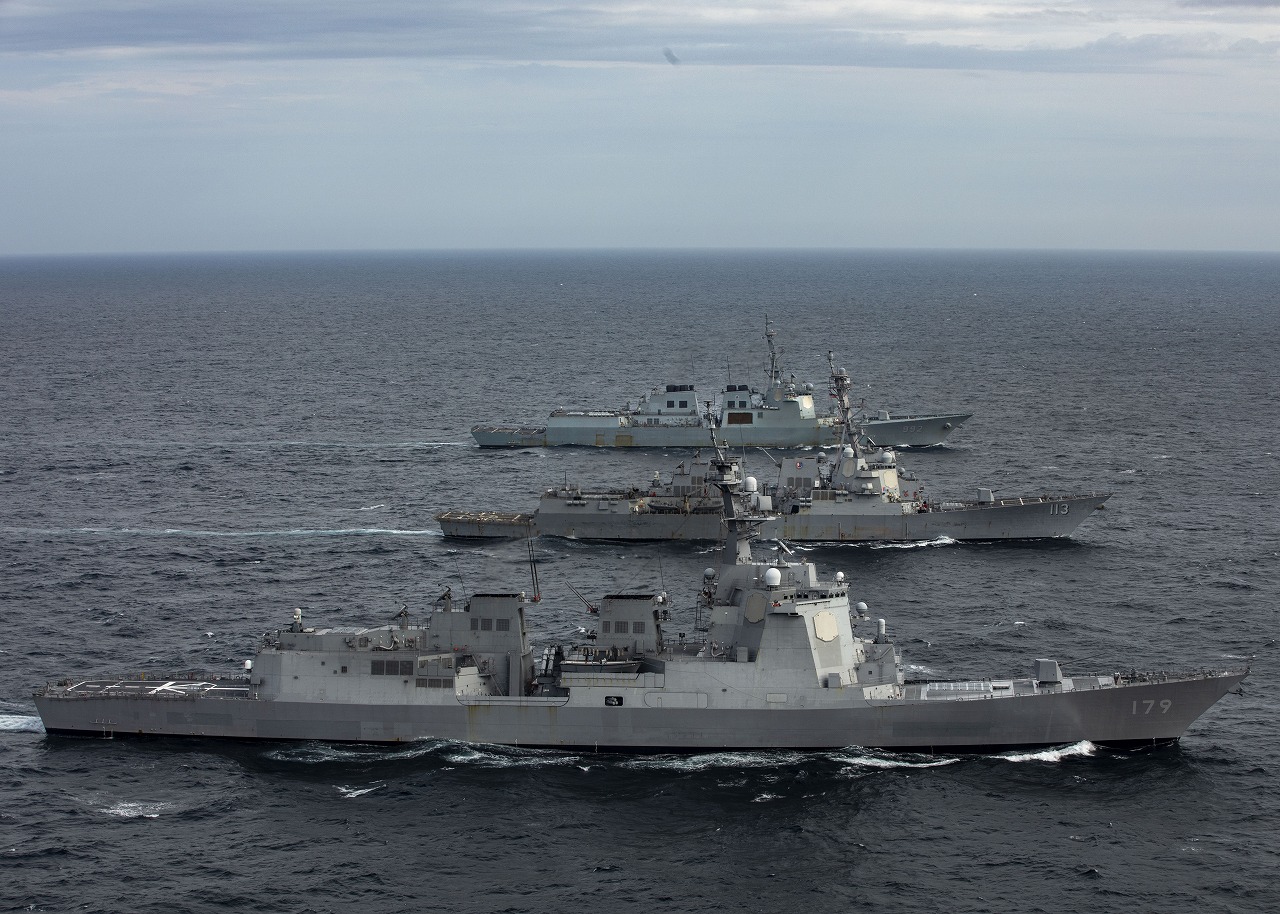The naval forces of Japan, South Korea, and the United States came together on July 16 for a rare joint missile defense drill in the Sea of Japan, reflecting the strengthening of security collaboration among the three nations against North Korea’s persistent provocations.
In a statement, the US Indo-Pacific Command emphasized that the exercise not only strengthens the interoperability among the combined forces but also showcases the robust trilateral relationship between the United States and its allied nations – Japan and the Republic of Korea.
The drill, featuring three Aegis-equipped destroyers – the South’s ROKS Yulgok Yi I, the US’ USS John Finn, and the Japan Maritime Self-Defense Force’s JS Maya – was focused on practicing the detection and tracking of a computer-simulated ballistic missile target, as well as sharing related information.
According to a South Korean Navy official, this exercise provided a valuable opportunity to bolster the military’s ability to respond effectively to ballistic missiles while fostering enhanced security cooperation between the three nations.
The official added that by leveraging the military’s robust response system and the effective coordination among the three nations, they would be able to address North Korea’s nuclear and missile threats in a highly efficient manner.

The joint exercise occurred in the wake of North Korea’s recent launch of an intercontinental ballistic missile (ICBM) and marks the fourth three-way missile defense drill during the Yoon Suk Yeol administration. The last such exercise involving all three countries occurred in April.
On July 12, Pyongyang tested its solid-fueled Hwasong-18 intercontinental ballistic missile (ICBM), raising concerns as it is believed to be capable of targeting a significant portion of the continental United States.
The missile remained airborne for an unprecedented 74 minutes, setting a new duration record for North Korea’s missile tests.
Thus, the latest exercise demonstrates trilateral cooperation and underscores the ongoing efforts to strengthen collaborative measures in response to Pyongyang’s military threats.
In a display of force, South Korea and the United States recently also staged combined air drills featuring the presence of a US B-52H strategic bomber.
The purpose of these drills was to send a strong message regarding the commitment of both nations to addressing the heightened tensions in the Korean Peninsula.
US-Japan-South Korea Trilateral Cooperation
The cooperation between Japan and South Korea, as key allies of the United States, holds significant importance for Washington’s security strategy in the Indo-Pacific region, particularly amid rising tensions involving China, North Korea, and Russia.
As the security environment surrounding Japan and South Korea grows increasingly severe and complex, the need for coordination and cooperation between the two nations and the United States has become more crucial than ever.
In early June, the three countries reached an agreement to establish a mechanism to share real-time warning data regarding North Korean missile launches.
The allies have set a target to implement this mechanism and commence data sharing “before the end of the year.”
This initiative addresses the ongoing challenge of sharing sensitive information between Japan and South Korea, particularly in light of North Korea’s frequent missile launches.

The proposal seeks to overcome the complexities associated with direct information sharing between the two nations by leveraging the US system as an intermediary.
This measure, which represents the latest in a series of trilateral actions taken in response to the escalating nuclear and missile threat from North Korea, coincides with a recent warming of relations between Tokyo and Seoul.
The North has conducted approximately 100 missile launches since the start of last year, and it is possible that this number could increase further while commemorating the 70th anniversary of the signing of the Korean War armistice on July 27.
The regime led by Kim Jong Un has a history of staging displays of military strength during key anniversaries. North Korea is planning a large-scale military parade for the notable national holiday.
That being said, the Biden administration has attempted to negotiate with North Korea, expressing its willingness to discuss matters concerning the country’s nuclear and ballistic missile programs without any preconditions. However, Kim Jong Un has not yet responded to these overtures from the United States.
- Contact the author at ashishmichel(at)gmail.com
- Follow EurAsian Times on Google News




